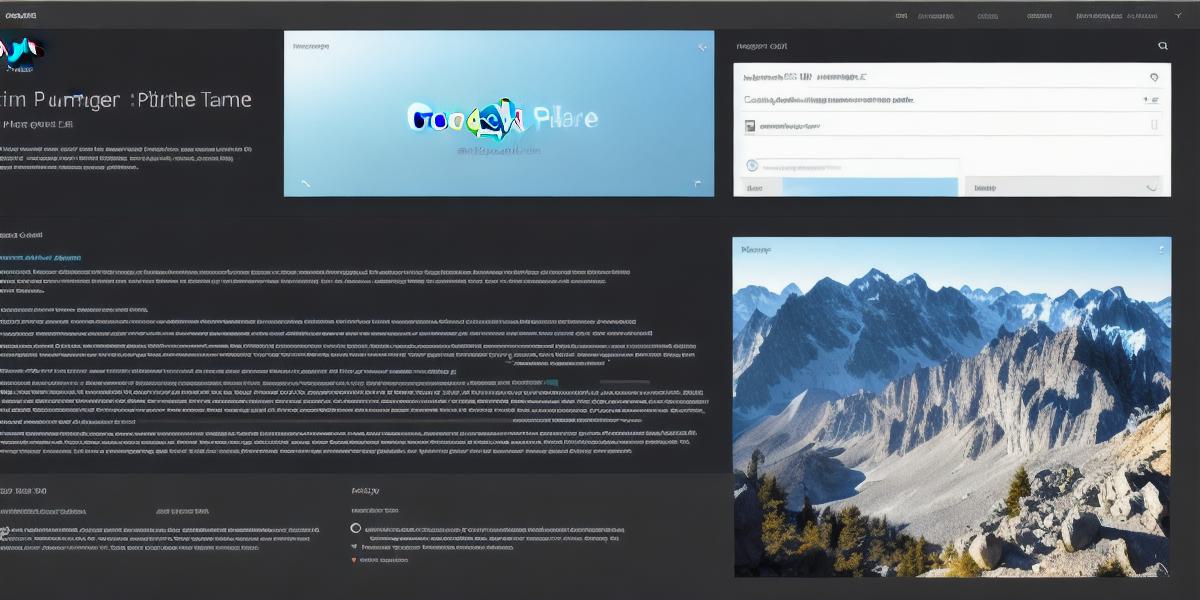Hosting Your Domain with Google: The Ultimate Guide for Programmers

Introduction:
Are you a programmer looking to host your domain on Google? Look no further! In this comprehensive guide, we will walk you through the process of hosting your domain with Google, including how to optimize your website for SEO and attract more traffic. We will also discuss case studies and personal experiences, as well as expert opinions and real-life examples to illustrate the points being made.
Hosting Your Domain on Google:
To host your domain on Google, you will need a Google Cloud account and a Google Domains account. Once you have both accounts set up, you can follow these steps:
- Choose a hosting plan: Google offers several hosting plans to suit different needs, including shared hosting, dedicated instances, and Kubernetes Engine.
- Register your domain: If you haven’t already registered your domain, you can do so through Google Domains.
- Point your domain to Google Cloud: You will need to update the DNS settings for your domain to point it to your Google Cloud hosting plan.
- Build and deploy your website: Once your domain is pointed to Google Cloud, you can build and deploy your website using a variety of tools and frameworks.
Optimizing Your Website for SEO:
Search engine optimization (SEO) is crucial for attracting traffic to your website. Here are some tips for optimizing your website for SEO:
- Use relevant keywords: Conduct keyword research to identify the terms and phrases that your target audience is using to search for content related to your website. Incorporate these keywords into your website’s content, metadata, and URLs.
- Build high-quality backlinks: Backlinks from reputable websites can improve your website’s ranking in search engine results pages (SERPs). To build backlinks, create high-quality content that others will want to link to, or reach out to relevant websites and ask them to link back to your site.
- Use schema markup: Schema markup is a type of code that provides additional context to search engines about the content on your website. This can help improve your website’s visibility in SERPs.
- Optimize page speed: Slow-loading pages can negatively impact your website’s ranking in SERPs. Use tools like Google PageSpeed Insights to identify areas for improvement and optimize your website’s performance.
Conclusion:
Hosting your domain with Google is a great option for programmers looking for a reliable and scalable hosting solution. By following these steps, you can optimize your website for SEO and attract more traffic to your site. Whether you are just starting out or a seasoned professional, this guide has something for everyone.








